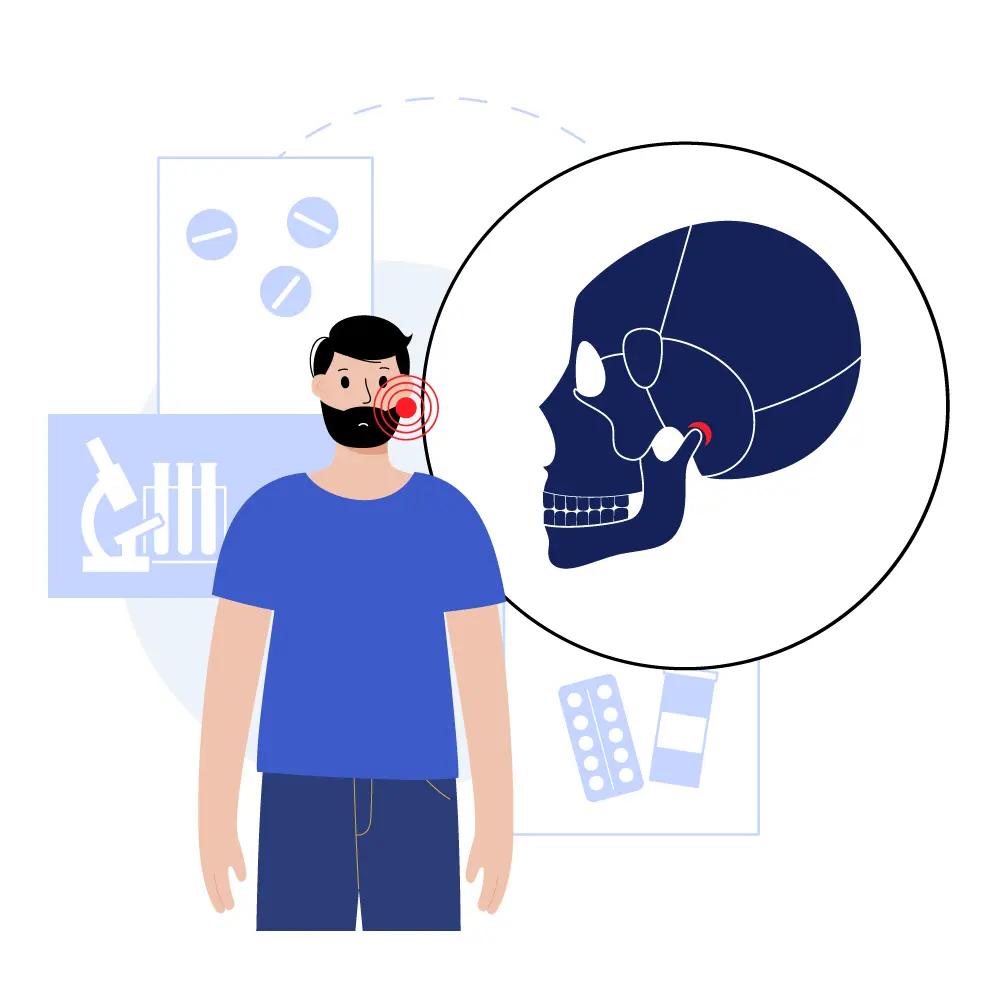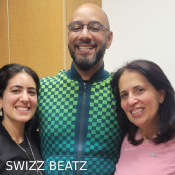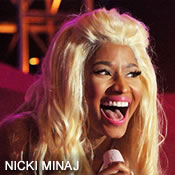Sutton Advanced Cosmetic Dentistry offers TMJ / TMD treatment in New York. We are located in Manhattan, Midtown East, just a block away from the Upper East Side.
What exactly is TMJ?
The Temporomandibular Joint (TMJ) consists of two joints that connect the movable lower jaw to the immobile temporal bone of the upper jaw. Both joints include the temporal fossa and the joint head (mandible). Between them lies the articular disc, responsible for reducing friction between the joint surfaces during the movement of the lower jaw. The chewing muscles assist in moving the lower jaw and maintaining it in the correct position.
Temporomandibular Joint Disorder (TMD) refers to a disruption in the synchronized functioning of the joint, inflammation, or other issues associated with it. It is closely linked to dysfunction in the facial chewing muscles.

TMJ treatment near me?
If you’re in search of top-notch TMJ treatment in your area, look no further than Sutton Advanced Cosmetic Dentistry!
For successful treatment of Temporomandibular Joint Disorder (TMD), it is crucial to diagnose the root cause of the pathology. This is impossible without the knowledge of neuromuscular dentistry.
We are TMJ specialists. We will conduct a thorough diagnosis based on the principles of neuromuscular dentistry, identifying the underlying causes of temporomandibular joint issues. We will successfully address and eliminate these causes, restoring ideal occlusion.

Dr. Mojgan Fajiram and Dr. Sheila Monahemi
Cosmetic Dentists, Porcelain Veneers Dentists in NYC
Review
Probably one of the best dental experiences I’ve ever had (if one can say such a thing). The technicians I had were very knowledgeable, professional, and friendly – could have easily mistaken one of them for the dentist. The dentist herself was very knowledgeable, confident, and ready to work. I can give no higher recommendation then to say that I no longer have TMJ. ~ YELP
TMJ Symptoms
- Pain in the temporomandibular joint area, radiating to the neck, face, or ears.
- Clicking, grinding, or popping sounds when opening or closing the mouth.
- Tenderness and tension in the facial chewing muscles.
- Regular headaches, migraines, ringing in the ears. Periodic jaw locking, inability to open or close the mouth.
Causes of TMJ disorders (TMD)
Disruption of Occlusion
The temporomandibular joint (TMJ) is a paired joint that functions synchronously. When the jaws come together incorrectly, the joints constantly experience overload. Lack of treatment for an improper bite can lead to impaired mobility or dysfunction of the temporomandibular joint.
Bruxism
Daily involuntary teeth grinding at night causes facial muscles to experience tension. The lower jaw assumes a forced, unnatural position. Vertical enamel wear lowers the bite. Occlusion is disrupted, leading to issues in the function of the temporomandibular joint.
Incorrectly Placed Crowns
Incorrectly placed crowns on teeth can alter the bite, either lowering or raising it. This leads to overload on the temporomandibular joint, eventually causing dysfunction.
Arthritis
In rheumatoid arthritis, all joints, including the temporomandibular joint, become inflamed. Cartilage is destroyed, and joints deform over time.
Diagnosing TMJ Disorders
|
At Sutton Advanced Cosmetic Dentistry, a specialized examination of the temporomandibular joint (TMJ) is conducted at the neuromuscular level. The goal of diagnosing TMJ dysfunction is to identify the deep root cause of the pathology. |
|---|
CT Scan
A computed tomography scan allows visualization of the TMJ components: the head, fossa, and joint eminence. It detects the slightest pathological changes.
JVA Analysis
A diagnostic method for the TMJ based on analyzing vibrations/oscillations when the lower jaw position changes. The patient wears a special headset resembling headphones, with accelerometers in the TMJ area connected to an amplifier. The patient opens/closes the mouth several times. The amplifier captures the slightest vibrations and oscillations.
A computer program analyzes the obtained data, providing the doctor with information about the real condition of the temporomandibular joint.
T-Scan
An innovative device for analyzing jaw movement during the closure of dental arches. The patient bites down on a plate with sensors. Sensors register contact points between teeth with accuracy up to 0.1 mm. Real-time data is displayed on the computer monitor.
The doctor identifies uneven distribution of chewing load and tracks deviations in the synchronicity of jaw joint function.
The information obtained is invaluable for diagnosing pathologies in the function of facial muscles and jaws, as well as for further development of ideal occlusion.
Treatment of TMD with your TMJ dentist in NYC
At Sutton Advanced Cosmetic Dentistry, the treatment of temporomandibular joint dysfunction (TMJ) involves a individually tailored set of procedures to address TMJ dysfunction and associated dental issues.
- Gnathology
We perform TENS (ultra-low-frequency electromyostimulation) to relieve spasms in the facial muscles that control the lower jaw. We adjust them to function correctly. - Occlusal Therapy
Precision grinding of teeth is carried out to establish proper contact during jaw closure. If necessary, we install a splint (orthopedic appliance) to assist facial muscles in transitioning to proper functioning. - Orthodontics
We conduct intraoral digital scanning of teeth using the iTero 5D Scanner, generating a highly accurate three-dimensional model for orthodontic treatment planning—four times more precise than traditional silicone impressions. We install braces or aligners to align teeth and normalize the positions of the upper and lower jaw. - Prosthodontics
We replace old veneers and crowns. New veneers/crowns are crafted using CEREC MC X technology, an advanced scanning and milling technique. If necessary, we perform a complete oral cavity reconstruction, restoring a physiologically correct occlusion and an impeccable smile.
FAQ
Who treats TMJ dysfunction?
TMJ Dentist Specialists with skills in neuromuscular dentistry, orthodontists, implantologists, and prosthodontists.
An advantage of our dental office is your access to all four specialists necessary for the treatment of TMJ dysfunction.
What happens if TMJ is left untreated?
Over time, due to constant overload, there is degeneration of the cartilaginous and bony tissues of the temporomandibular joint. The longer the treatment is postponed, the less likely successful restoration of jaw movement becomes.
What is the prognosis for a positive result after treatment?
A successful result can be guaranteed only with 1) accurate diagnosis of the underlying causes of TMJ dysfunction and 2) a well-constructed and implemented treatment plan.
How much does TMJ Treatment cost?
The cost of treatment depends on the complexity of the clinical case and the number of procedures required to address TMJ dysfunction. The doctor will provide the price after diagnosis and treatment plan formulation.





















